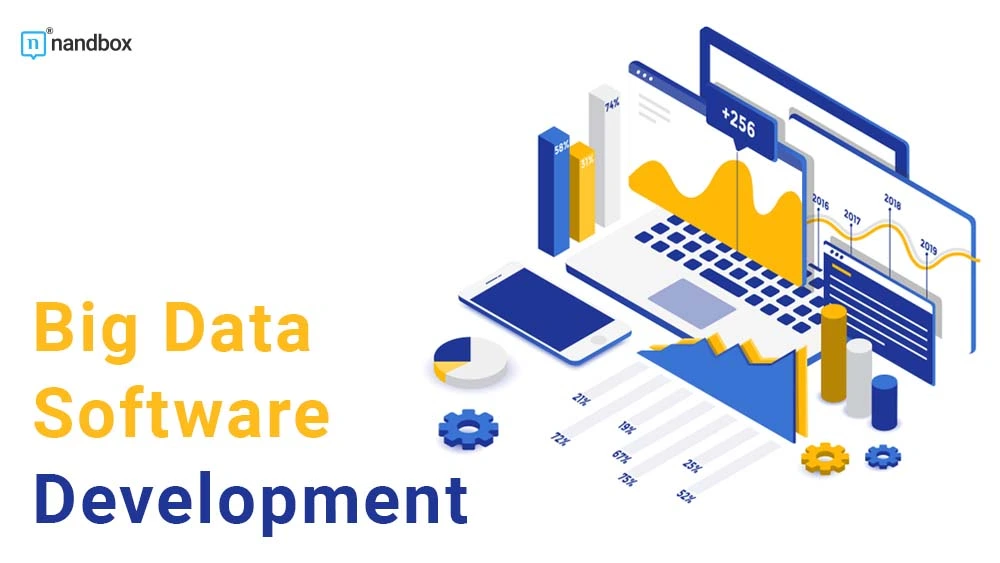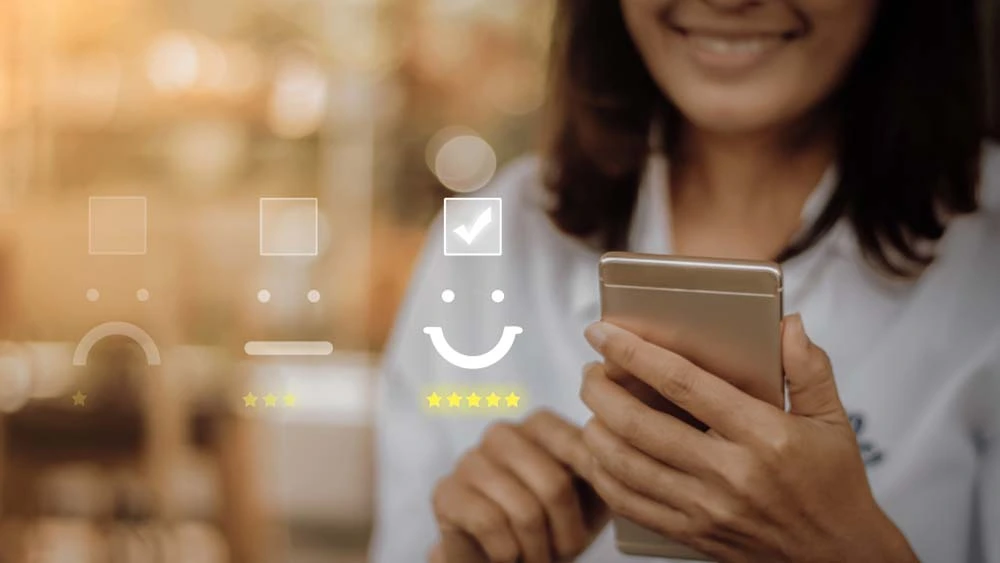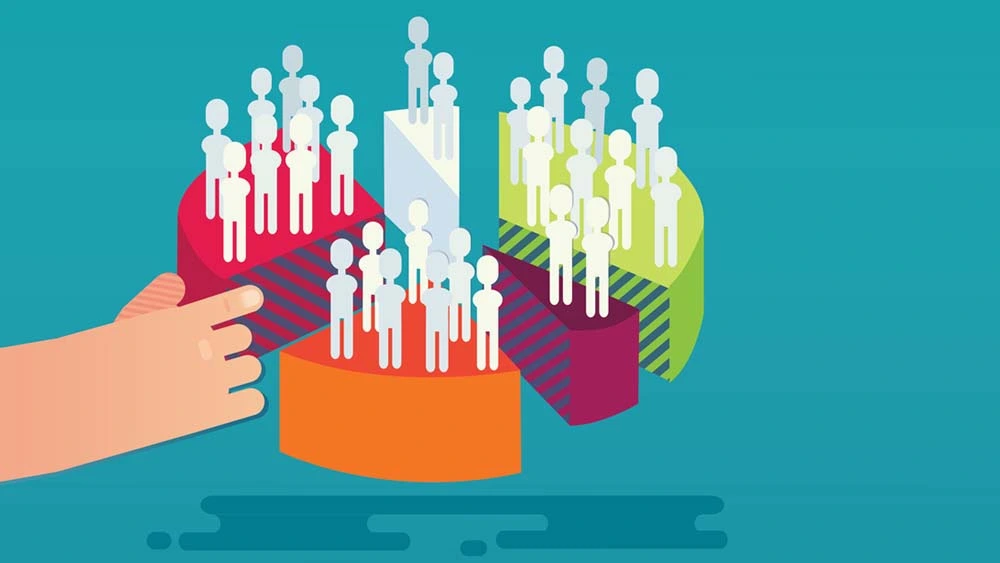Rapid growth of mobile apps is continuously happening because the whole tech industry and trend are in demand nowadays. This has caused people to be more aware of mobile apps. In addition to becoming willing to develop them more and more each day. It is a reality that mobile apps use a lot of data. However, we rely heavily on them to complete our daily tasks. The data used by mobile apps requires effective evaluation and management. That is why we need a data management solution for these tasks. That is why we’re going to discuss big data software in mobile app development.
The use of big data in mobile app development is revolutionizing the industry. It is allowing developers to create more personalized and intelligent apps. By analyzing large amounts of data, developers can gain insights into user behavior and preferences. This leads to better app design and functionality. In this guide, we’ll explore the ways we can use big data in mobile app development and the benefits it offers.
What Is Big Data Software Development?
In the modern era, people, tools, and gadgets all produce a variety of and constant amounts of data. And with so much data, analytics, hosting, and gathering require scalable, innovative, improved, and new technological solutions. Big data technology processes the complicated collected data to derive rich and real-time business information related to risk management, performance management, profit, and user engagement. Speed is the most crucial element in the big data era. Traditional analytics often concentrate on assessing past data; however, big data analytics can also include real-time data. There are three specific “Vs” that describe or simply characterize big data:
Big Data Software Development Three “Vs”
- Volume of data: Due to the nature of the data being collected and kept in them, most big data environments do include a significant amount of data. The sources that frequently generate enormous volumes of data on a continuous basis include clickstreams, system logs, and stream processing systems.
- Variety of data: This includes structured data such as financial records and some transactions, unstructured data such as multimedia files and texts, and semi-structured data such as streaming data or server logs. Big data systems may require the storage and management of a variety of kinds of data. Big data applications also frequently contain numerous data sources that might not be merged at first. By combining information from previous sales, returns, online reviews, and customer care calls, for instance, a big data analytics project can try to estimate the sales of a product.
- Velocity of the data: Velocity is the term used to describe the rate at which data must be received and analyzed. Instead of the daily, weekly, or monthly updates that are frequently made in traditional data warehouses, huge data sets are frequently updated in real-time or very near real-time. In ML and AI, where analytical systems automatically detect patterns in data and utilize them to develop insights, managing data velocity is equally crucial.
How Big Data Is Used in Mobile App Development
As we mentioned above, “big data” refers to large and complex sets of data that are difficult to process using traditional data processing methods and techniques. In mobile app development, big data is used to analyze user behavior, preferences, and patterns to create more personalized and intelligent apps. By collecting and analyzing data from various sources, such as social media, location data, and user interactions, developers can gain insights into what users want and need from their apps. This allows them to create apps that are tailored to individual users, improving user engagement and satisfaction.
The Role Big Data Plays in Improving User Experience
Big data is playing a crucial role in improving the user experience of mobile apps through personalization. By analyzing user data, developers can create apps that are tailored to individual users, providing them with a more personalized experience. For example, an app that uses location data to provide personalized recommendations for nearby restaurants or events can improve the user experience and increase engagement. Personalization can also help developers identify and fix issues with their apps, improving overall and total user satisfaction.
Big data has made it possible for the user experience to finally be data-driven. It enables using an unbiased source of information when making decisions based on the actions of prior mobile app users. Making all decisions in the development of the user experience based on data implies using accurate information. Big data reveals what customers do, how they use a product, for how long, what they like, and what confuses them. This is factual knowledge that is very useful.
Benefits of Big Data Software Development
There are many different benefits that come along with big data software development. From personalization to enhancing the way you understand your mobile app’s target audience by collecting data that is thoroughly analyzed and collected. Here are some of the benefits that you can leverage to your advantage by using big data software development. As organizations leverage these benefits, they progress through the data-driven maturity matrix, moving from basic data collection to advanced predictive analytics and AI-driven decision-making. This evolution allows businesses to extract increasingly sophisticated insights from their data, leading to more informed strategies and improved app performance.
Understanding Your App’s Target Audience
It is of great importance that you understand your target audience before you can even start working on mobile app development. Big data analysis can give you important insights into how consumers of various ages and backgrounds use the mobile app. Mobile app developers can more effectively supply you with cutting-edge mobile apps by utilizing such analytical data. Uber is a great example and a clear demonstration of the development of big data software usage. It enhanced Uber’s process of developing audience comprehension. Before giving you an estimated price, Uber employs big data analytics to review the current traffic situation, the availability of cabs, and the projected travel time.
Enhances End-To-End Marketing
Predictive analysis is one of the intelligent marketing tools and services offered by big data analytics. It enables businesses to forecast the performance of their apps and suggest essential actions to boost product ubiquity.
Big data software development offers data mitigation services in addition to predictive analysis, allowing mobile app developers to quickly transmit data between different applications.. Running targeted marketing campaigns simultaneously across many channels is much easier as a result. To help you stand out in the industry, the big data study also provides you with insights into customer purchasing patterns and demographic information. Big data can be leveraged to your advantage and can impact your marketing strategies in the following ways:
- Can help offer better pricing, content, and designs that help lure in some app users.
- Can help you address all users’ pain points.
- Big data can help provide you with an analyzed path that will help your reach rate become higher.
Better Real-Time Data Feeding
The market for mobile apps is always changing to reflect the most recent trends and consumer preferences. One needs to be aware of these changes if they want to stay ahead of any market competition. Big data analytics gives you access to real-time data that will help you decide how to increase your sales conversion and boost your app maintenance.
Fitness tracking applications’ real-time data might be a great demonstration. These applications simply have the option to keep track of all of their users’ daily routines. These routines include eating, sleeping, and other activities. The mobile app must continue to get uninterrupted real-time data in order to function at its best.
Improved Security and Fraud Detection
Big data software development is also playing a crucial role in improving security and fraud detection in mobile app development. Developers can find trends and abnormalities that might point to fraud or security breaches by analyzing vast amounts of data. This can help prevent data breaches and protect user information. Additionally, big data can be used to monitor user behavior and detect any suspicious activity, allowing developers to take action before any damage is done. Overall, big data is helping to make mobile apps more secure and trustworthy for users.
Key Components of Big Data
There are two major components to big data. These two are predictive analysis and machine learning. These two components are transforming the mobile app development industry. Utilizing data, statistical algorithms, and machine learning strategies, predictive analytics determines the probability of future results based on historical data. This can be used to predict user behavior and preferences, allowing developers to create more personalized and relevant apps. Machine learning, on the other hand, involves using algorithms and statistical models to enable computers to learn from data and make predictions or decisions without being explicitly programmed. This can be used to improve app performance, identify bugs and errors, and optimize user experiences. Together, predictive analytics and machine learning are helping developers create smarter, more personalized apps that meet the needs and preferences of individual users.
Final Thoughts
Big data is changing and transforming the whole concept of software application development. Compared to online websites, mobile applications are much more in demand. They are more popular because of how simple they are to use and show. Therefore, developers must put in a lot of work to create a captivating and distinctive user experience. Big data provides a vast amount of information on location, user demands, and preferences. Organizations should make efficient use of the data generated by big data analytics to stay ahead of the competition.
Want to build an app for your business but don’t know where to begin? We’ve got you! In nandbox it is our main goal to help you develop your own app without using a single line of code. You don’t need any prior knowledge of programming or coding languages to create your own app from scratch with us. We take care of all the back-end tech stuff, and you take care of dragging and dropping your desired features. Sign up now for nandbox’s native no-code app builder and build your native app for a fraction of the cost!





